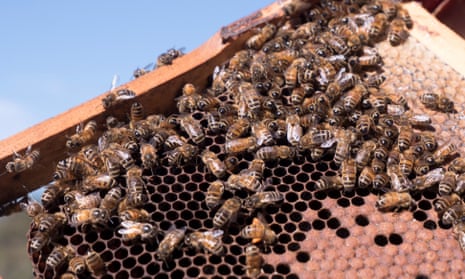Australia’s honey industry has welcomed a UK decision to reject New Zealand’s bid to trademark the term manuka honey, which they hope will set a precedent for other jurisdictions.
The UK is one of several jurisdictions where a group of New Zealand producers have tried to stop products made outside the country using the label manuka honey.
In their decision, the UK Intellectual Property Office found that the term was not an inherent indication of certification because it was widely used as a descriptive term.
“The combination of the dictionary definitions, the manner of the use and the way in which manuka honey is presented to the relevant public is very likely to lead to it being perceived, by at least a large proportion of the relevant public, as a purely descriptive term designating a type of honey.”
The IPO also found that “manuka”, despite being a Mãori word, had entered the English language as a descriptive word, and that it had not come to reflect an understanding that the honey exclusively originates from New Zealand.
“There is evidence from dictionaries, the FSA (Food Standards Agency) project and from press articles that all suggest that the public understanding of the term in the UK is that it describes honey from New Zealand and other geographical locations, in particular, Australia.”
Manuka honey comes from bees feeding on the pollen of the Leptospermum scoparium plant, which is known as “manuka” in New Zealand, and “tea tree” in Australia.
Manuka honey is one of New Zealand’s biggest exports, and is worth hundreds of millions of dollars a year. The honey is prized for its antibacterial properties.
The Mānuka Charitable Trust, a group representing industry bodies, tribes and governments, said it was “disappointed” by the decision, and that it was “considering its options”.
Pita Tipene, chair of the trust, said the issue was about Indigenous rights.
“This is an Indigenous rights issue and is out of step with existing Indigenous IP frameworks. Manuka is our Māori reo [language] and a precious taonga [treasure] that we must honour and protect,” Tipene said.
“This ruling ignores the role of iwi as kaitiaki [guardians] and is insulting to Māori and our culture.
“All countries have their own unique honeys and the use of names that are specific to indigenous honeys is respectful and should be encouraged. This is key to maintaining value for consumers and producers across the world.”
Tipene said it was “misleading” to continue to use the label on honey not produced in New Zealand.
“We remain strongly of the view that it is misleading to consumers for honey producers outside Aotearoa New Zealand to claim the name manuka honey when the plant the nectar came from did not grow in Aotearoa.”
The Australian Manuka Honey Association said it was “delighted” by the IPO’s decision, saying it would have “widespread ramifications in jurisdictions beyond the United Kingdom”.
Association chair Paul Callander said it was the “right decision and a fair decision”.
“The term manuka has been used in Australia since the 1800s and the Australian industry has invested significantly for decades in manuka honey science, research and marketing.
“It would be deeply unfair – and financially devastating – to deny that reality.”
Callander hoped other jurisdictions where trademark certification had been sought would follow the UK’s example.
“The market is forecast to be worth $1.27bn globally by 2027 and offers vast potential for local innovation and manufacturing,” Callander said.
